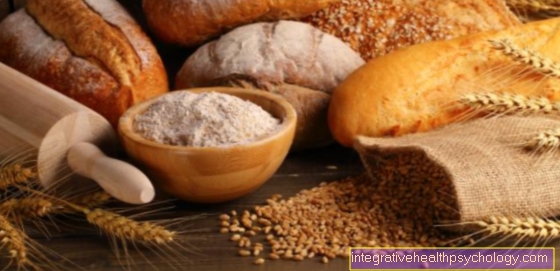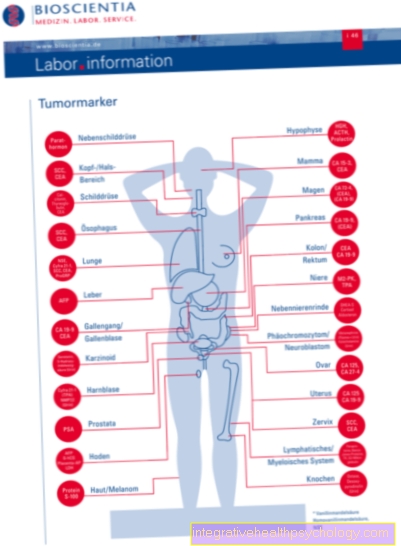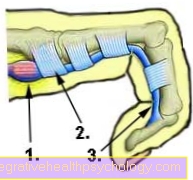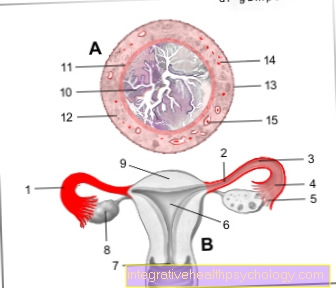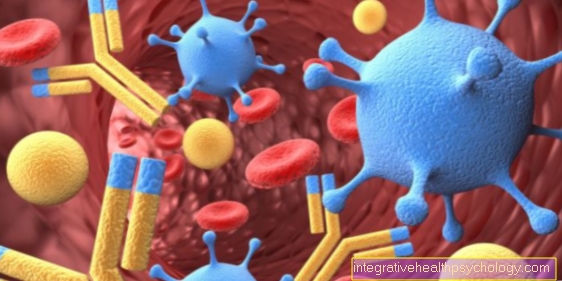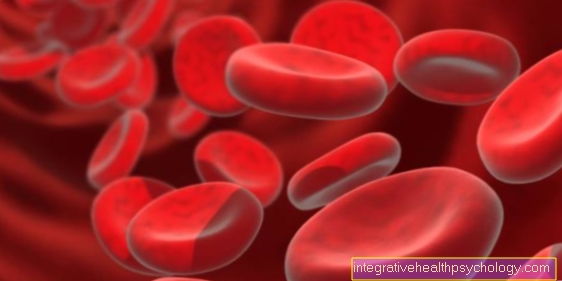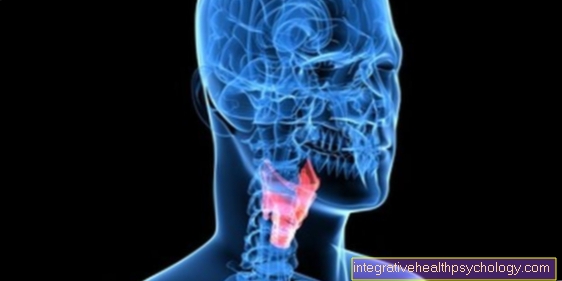Effect of Marcumar®
Synonyms in a broader sense
Phenprocoumon (active ingredient name), coumarins, vitamin K antagonists (inhibitors), anticoagulants, anticoagulants
How does Marcumar® work?
The drug known under the trade name Marcumar® contains the active ingredient phenprocoumon, which belongs to the main group of coumarins (vitamin K antagonists).
Coumarins are molecules that have a suppressive effect on the natural processes of blood clotting and thus inhibit the clotting of the blood (anticoagulants).
Marcumar® is usually used to prevent thrombosis; this may be necessary in the context of an implantation of artificial heart valves or vascular bypasses, after heart attacks or in the case of chronic cardiac arrhythmias.
During natural blood clotting, cascade-like activation processes of various blood clotting factors take place in the organism. This means that certain blood clotting factors go into action in sequence and then activate each other.
Among other things, factors II, VII, IX and X are indispensable for smooth hemostasis. What is special about these blood coagulation factors is the fact that they are all vitamin K dependent (remember: Vitamin K dependent blood coagulation factors 1972 = "nine, ten, seven, two") and can therefore be inhibited by Marcumar®.
These factors are carboxylated at a specific amino acid residue (glutamyl) by vitamin K, which means that a carboxyl group is added. As a result of this carboxylation, the vitamin K-dependent coagulation factors are able to bind particularly effectively to calcium ions and thus promote blood coagulation.
However, since the chemical structure of the vitamin K is changed during this carboxylation reaction, a mechanism is required that can restore the vitamin's initial state.
Coumarins in general and Marcumar® in particular now act as competitive inhibitors on an enzyme called vitamin K epoxide reductase, which does exactly this job.
In this context, competitive means that the drug competes with the modified vitamin K for a binding site on the enzyme and thus enormously reduces the probability of vitamin K being restored.
The effect of Marcumar® is based on a lowering of the vitamin K level in the organism and the resulting prevention of the carboxylation of the blood coagulation factors II, VII, IX and X.
The factors remain inactive or can only be activated to a very limited extent. As a result, there is drastic intervention in the normal course of blood coagulation, and no anticoagulation is the result.
Due to this mechanism of action, Marcumar® is one of the anti-coagulants belonging to a group called "vitamin K antagonists".
In contrast to other anti-clotting drugs, the effect of coumarins (including Marcumar®) takes a very long time to set in.
This is due to the fact that vitamin K antagonists can only develop an effect when the natural supply of vitamin K and carboxylated, fully activatable coagulation factors have been used up.
For this reason, they cannot be used in acute emergency situations, but only for long-term, chronic blood clotting disorders or for the prevention of thrombosis.
Since the long-term intake of Marcumar® has a lasting effect on the vitamin K metabolism, care must be taken to ensure that the vitamin is supplied sufficiently, but not excessively, during use.
Read more about the topic here: Blood clotting
Side effects
Unwanted side effects cannot be ruled out; side effects such as nausea, Vomit, stomach pain, Loss of appetite and Diarrhea on. In some patients it occurred after long-term treatment with Marcumar® Constipation, reinforced Hair loss, the appearance of Bruising and even undesirable Bleeding tendencies.
The most serious side effects include bleeding within the skull (intracerebral bleeding, Cerebral hemorrhage) and high blood pressure.
After stopping the Marcumar® it can again 10-14 days take until the anticoagulant effect disappears and the normal coagulation process can take place again. This fact can be explained by the fact that a sufficiently high concentration of carboxylated coagulation factors can only be formed after this time.
In emergency situations it is therefore necessary to supply the missing coagulation factors II, VII, IX and X to the organism externally in order to obtain a possible Risk of bleeding contain.
Also in connection with planned operational interventions and Dental treatments Always remember to stop taking the anti-coagulant drug early enough to prevent an increased tendency to bleed.
Read a lot more information at: Side effects of Marcumar®
How can you cancel the effects of Marcumar?
Marcumar® develops its effect by inhibiting the formation of certain so-called coagulation factors in the liver. It blocks the vitamin K necessary for their production. This “thins” the blood or, more precisely, slows down the tendency to clot.
The desired effect is that dangerous blood clots (thrombi) do not form in the vessels, which could otherwise lead to vascular occlusion. According to the mechanism of action of Marcumar® or its active ingredient phenprocoumon, the effect of the drug can be canceled by adding vitamin K to the patient. This can either be swallowed or administered directly into the blood through the vein. Due to the excess of vitamin K in the liver, the anticoagulant effect of Marcumar® is canceled. In this way, for example, a bleeding tendency caused by an overdose is treated.
Read more on the topic here: Causes of a thrombosis
Does Marcumar work for diarrhea?
Marcumar is also effective against diarrhea, but the mode of action can be strongly influenced in some cases. If you have severe diarrhea, the absorption of vitamin K from food may be reduced. In proportion, there can now be an excess of the active ingredient in Marcumar® in the liver, which inhibits the function of vitamin K. As a result, the blood coagulation is inhibited too much and there is a tendency to bleed. The attending physician should therefore be informed if a patient who takes Marcumar® develops diarrhea. If necessary, the coagulation values should be checked more frequently and the dosage adjusted accordingly.
Read more on the topic: Medication for diarrhea

